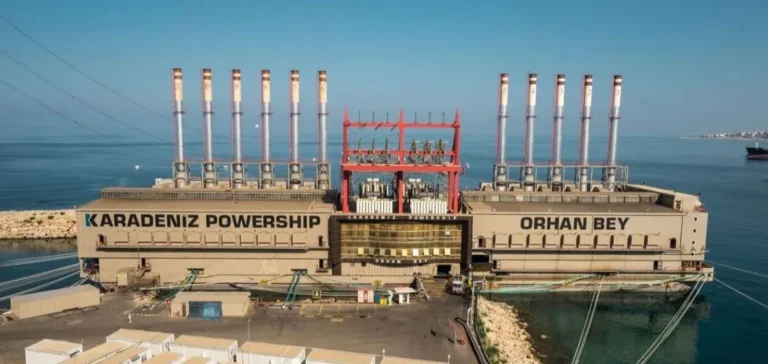Karpowership, a key player in the floating power plant sector, has announced with Singapore-based Seatrium the naming of Karadeniz LNGTS Americas, the fifth vessel in its fleet of Liquefied Natural Gas Terminal Ships (LNGTS). This initiative marks a new step in the Turkish company’s expansion strategy, which currently operates a global fleet of 50 Powerships and 11 LNGTS units, either completed or under construction.
The LNG-to-Power technology enables Karpowership to rapidly deploy power generation solutions in regions with limited onshore infrastructure. By combining multi-fuel Powerships with floating LNGTS terminals, the company offers a modular model tailored to areas without direct access to natural gas. The Karadeniz LNGTS Americas thus adds to a fleet already operating across four continents, with active projects in Brazil and Senegal—the latter being the first of its kind in Africa.
Conversion Agreement for a New Generation Fleet
Alongside the naming ceremony, Karpowership and Seatrium signed a Letter of Intent (LoI) covering the conversion of three high-capacity LNGTS units and the development of a new generation of Powerships. This partnership aligns with Karpowership’s ambition to double its share of the global installed gas-to-power capacity, currently estimated at 1%.
The new units included in the agreement will feature a modular architecture, designed to adapt to the specific needs of each project. This flexibility will allow for the integration of advanced technologies when required, such as Carbon Capture, Utilization and Storage (CCUS) systems or high-efficiency turbines.
Expanding Industrial Cooperation in Marine Energy
The collaboration with Seatrium, a specialist in offshore engineering solutions, aims to accelerate the market deployment of rapidly installable power solutions. With its technical expertise in ship conversion and marine energy infrastructure design, Seatrium will play a key role in standardizing and optimizing Karpowership’s fleet.
The joint development of high-capacity LNG-to-Power units reflects a sector-wide trend where infrastructure mobility is becoming a strategic lever to meet critical electrification needs. As global energy demand continues to grow, modular marine power plants offer a supply alternative that can bypass geopolitical or logistical constraints tied to terrestrial grids.






















